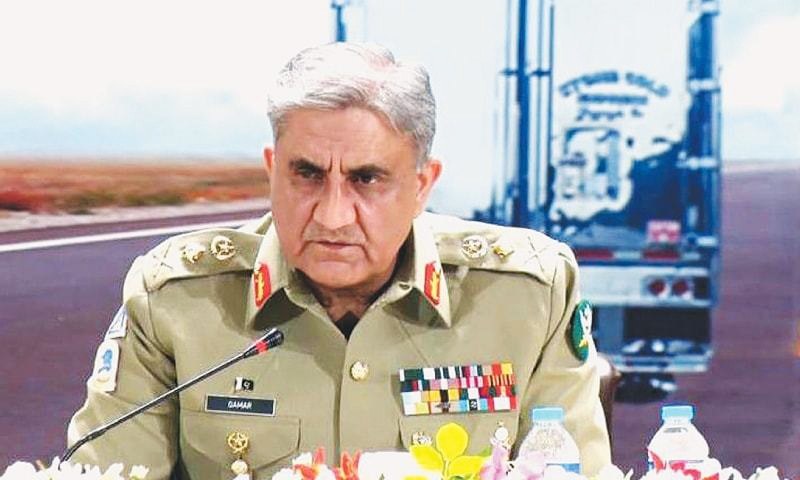News Analysis |
Chief of Army Staff General Qamar Javed Bajwa made it clear on Friday that Pakistan shall respond in self-defense to any act of unprovoked aggression by the Indian military. It is important to recall that after India violated Pakistan’s airspace and bombed ‘trees’, the situation between the two countries got critically tense.
According to the Inter-Services Public Relations (ISPR), the army chief said this in his telephonic communication with the commanders of the United States Central Command (USCENTCOM), UK Chief of Defence Staff (CDS), and the Australian Chief of Defence Force (CDF), as well as the ambassadors of the US, UK, and China in Pakistan. DG ISPR Major-General Asif Ghafoor said the “prevailing standoff between Pakistan and India and its impact on peace and stability in the region and beyond” was discussed in the telephonic communication.
Russia, the United States, and other global powers are now reportedly playing the role of mediators to de-escalate tensions between the nuclear-armed neighboring countries.
General Ghafoor Tweeted
“COAS had tel comm with Comd USCENTCOM, CDS UK, CDF Australia and Ambs of US, UK & China in Pak. The prevailing standoff between Pakistan & India & its impact on peace & stability in the region & beyond discussed. “Pak shall surely respond to any aggression in self-defence”, COAS.”
COAS had tel comm with Comd USCENTCOM, CDS UK, CDF Australia and Ambs of US, UK & China in Pak. Prevailing stand off between Pakistan & India & its impact on peace & stability in the region & beyond discussed. “Pak shall surely respond to any aggression in self defence”, COAS.
— DG ISPR (@OfficialDGISPR) March 1, 2019
As a matter of fact, since the day Pakistan Air Force (PAF) shot down two Indian jets and arrested Commander Abhinandan Varthaman, Indian army and media have issued strong warnings to target Pakistan. Prime Minister Imran Khan also said in his speech in the joint session of the Parliament that India was planning to attack Pakistan but later on the plan was changed. “I want to tell you that if you attack us we will have no option except retaliation,” PM Khan has repeatedly conveyed to India. Russia, the United States, and other global powers are now reportedly playing the role of mediators to de-escalate tensions between the nuclear-armed neighboring countries.
Some reports suggest that after humiliation at Line of Control (LoC) by losing two jets and one piolet, India wanted to get tough at Pakistan but experts warned it about the aerial power of Pakistan. Sources claim that Karachi was the potential target of the Indian navy. “When Indian armed forces and political leaders came to know that Pakistan will give a befitting response they immediately changed their mind,” sources added.
Read more: We are peace loving, but won’t be intimidated, COAS tells India
Moreover, Petr Topychkanov, a senior researcher at the Carnegie Moscow Centre’s Non-Proliferation Programme, has said that despite heavy budget and several agreements with Israel, India may not be able to defend itself if it decides to attack Pakistan. “Even in 10 years and with the huge budgets that India plans to spend on the development of nuclear weapons and capabilities, it is difficult to imagine it will be able to defend its territory from possible strikes from Pakistan in case of conflict,” Topychkanov was quoted as saying by a newspaper.
Therefore, it is widely believed that although Indian present government wanted to violate Pakistan’s airspace repeatedly to appease its people in order to seek maximum political support in the upcoming general elections yet it remained constrained due to befitting and timely response of Armed Forces of Pakistan.
Read more: Bajwa doctrine also holds an olive branch for Modi’s India –…
Experts believe that the message conveyed by the COAS to the world leader is loud and clear that “Pakistan will not think of retaliation rather it will retaliate”. Moreover, the COAS’s message also means that the world community should play its role more effectively to de-escalate the tension between the two nuclear states.














